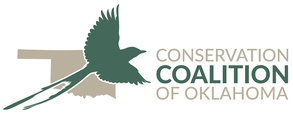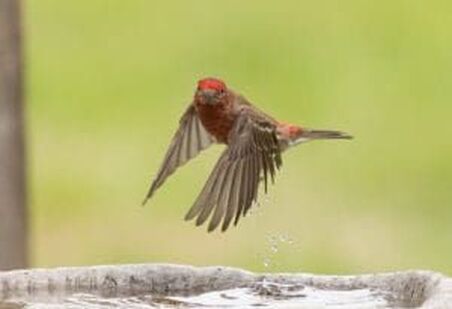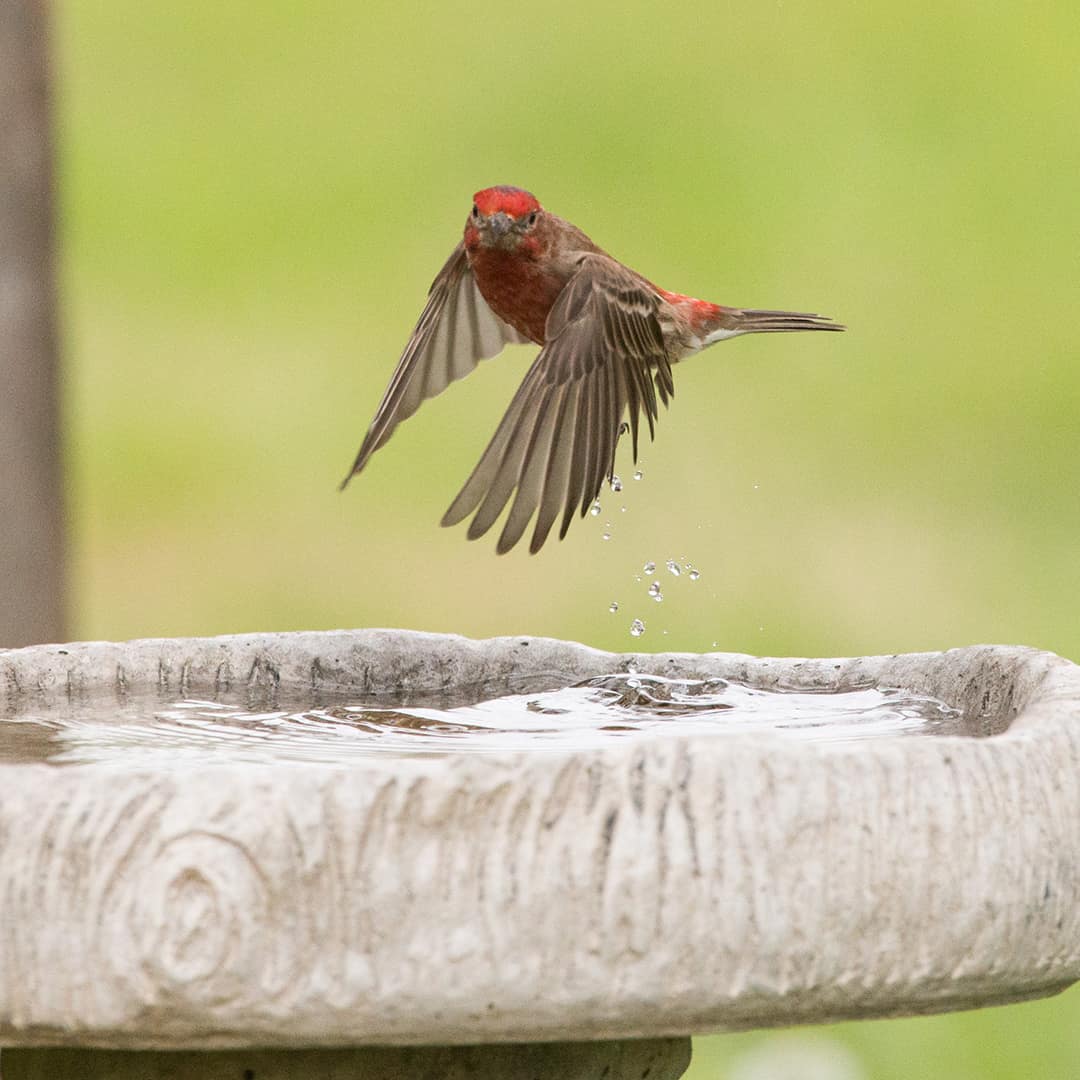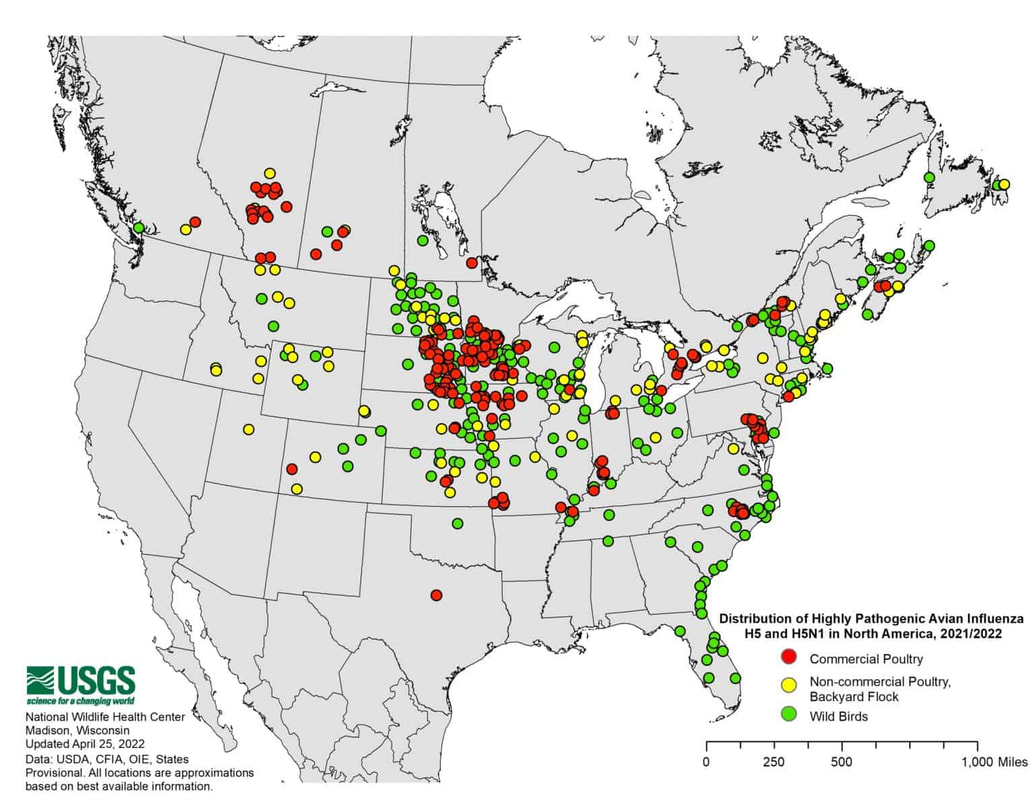State officials say taking down bird feeders not yet necessaryBy KELLY BOSTIAN For the CCOF Oklahoma officials aren’t ready to recommend residents take down backyard bird feeders to stem the spread of highly pathogenic avian influenza. However, they are urging caution as such guidelines are being seen in northern states. US Department of Agriculture Wildlife Services reported one positive case of HPAI in a wild duck from Payne County in March and that remains the only one. However, awareness and caution remain important in Oklahoma even if the state is not under a “heavy push” for testing, said Assistant State Director Kendra Cross. Advisories from the national USDA-Animal Protection Health Inspection Service and the Centers for Disease Control continue to simply advise awareness, caution, and cleanliness. Migratory waterfowl are the main contributors to the spread of avian influenza, caused by a virus that has several strains, some of which are more serious than others. Most can carry the disease without getting sick so as they migrate they spread the disease to other bird species as well as within their own flocks. Bird flu is not a big concern for turkey hunters in the field now for turkey season. Oklahoma Department of Wildlife Conservation biologist and southwest turkey project leader Marcus Thibodeau said normal precautions around any wildlife that appear sick are prudent. It is not impossible for the birds to contract the flu but it is not documented among the non-migratory wild turkeys. However, it is one among many other possible diseases the department will be screening for in ongoing research, he said. Cross said the primary interest in Oklahoma is on waterfowl, shorebirds, gulls, and birds of prey, and some more samples were sent for testing in recent weeks but results have not yet been returned. “We’re assuming at this point that no news is good news,” she said. Reports of the outbreak came as much of the waterfowl migration already passed Oklahoma, so a heavier focus is active in northern states and other states where flu outbreaks have hit poultry farms. However, people should assume the disease remains present, she said. The flu has been documented in nearly every state in the nation following the spring migration, according to USDA alerts and maps.
“As far as animal care we are warning all avian producers to make sure they continue to follow all their biosecurity measures very closely,” Cross said. “So far we have been OK on the poultry production side of things.” Still, she advised caution. “Just because we haven’t seen spread to humans in the nation, that doesn’t mean you shouldn’t wear (personal protection equipment,)” she said. People who find concentrations of dead birds of any kind, dead eagles or other birds of prey, or waterfowl, are urged to keep their hands off and contact USDA Wildlife Services at 405-521-4039 or the state Oklahoma Department of Agriculture Food and Forestry Animal Industry Division at 405-522-6141, she said. Cross did recommend people with feeders follow standard precautions to keep feeding stations clean to avoid the spread of any diseases, as they should always. “People can obviously take in feeders or birdbaths if they want to be extra cautious, and if they notice a bird die-off they should contact us,” she said. “It’s always best to be cautious and clean bird feeders regularly. Bird flu spreads through saliva, mucus, and feces so it can be shed where birds are concentrated.” The call for caution is stronger from The Raptor Center at the University of Minnesota. The Illinois Department of Natural Resources recommendation this week mirrors the center’s call for feeders to come down until at least May 31. Raptor Center Executive Director Victoria Hall noted that, while the role of songbirds in the spread of the disease is unclear, the current spread of the highly pathogenic H5N1 strain is “unprecedented” and she urged people to do all that they can. “Every day at The Raptor Center, we are seeing the impact of HPAI as we triage and test birds like bald eagles and great horned owls that are intensely suffering from fatal neurological illness due to HPAI. With these infected birds, humane euthanasia is the only tool we have left to help them. We also know that this strain and outbreak is causing severe illness in other species like geese, ducks, blue jays, and crows,” Hall wrote. Hall recommended that people stop using feeders and birdbaths “for the next couple of months.” While hummingbirds are at much lower risk, she also recommended that people take down hummingbird feeders or clean them daily. Kelly Bostian is an independent journalist writing for The Conservation Coalition of Oklahoma Foundation, a 501c3 non-profit dedicated to education and outreach on conservation issues facing Oklahomans. To learn more about what we do and to support Kelly’s work, see the About the CCOF page.
0 Comments
Leave a Reply. |
Archives
May 2024
Categories
All
|
Conservation Coalition of Oklahoma
P.O. Box 2751
Oklahoma City, OK 73101
[email protected]




